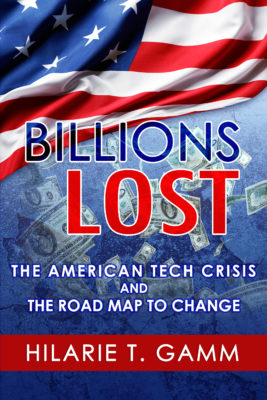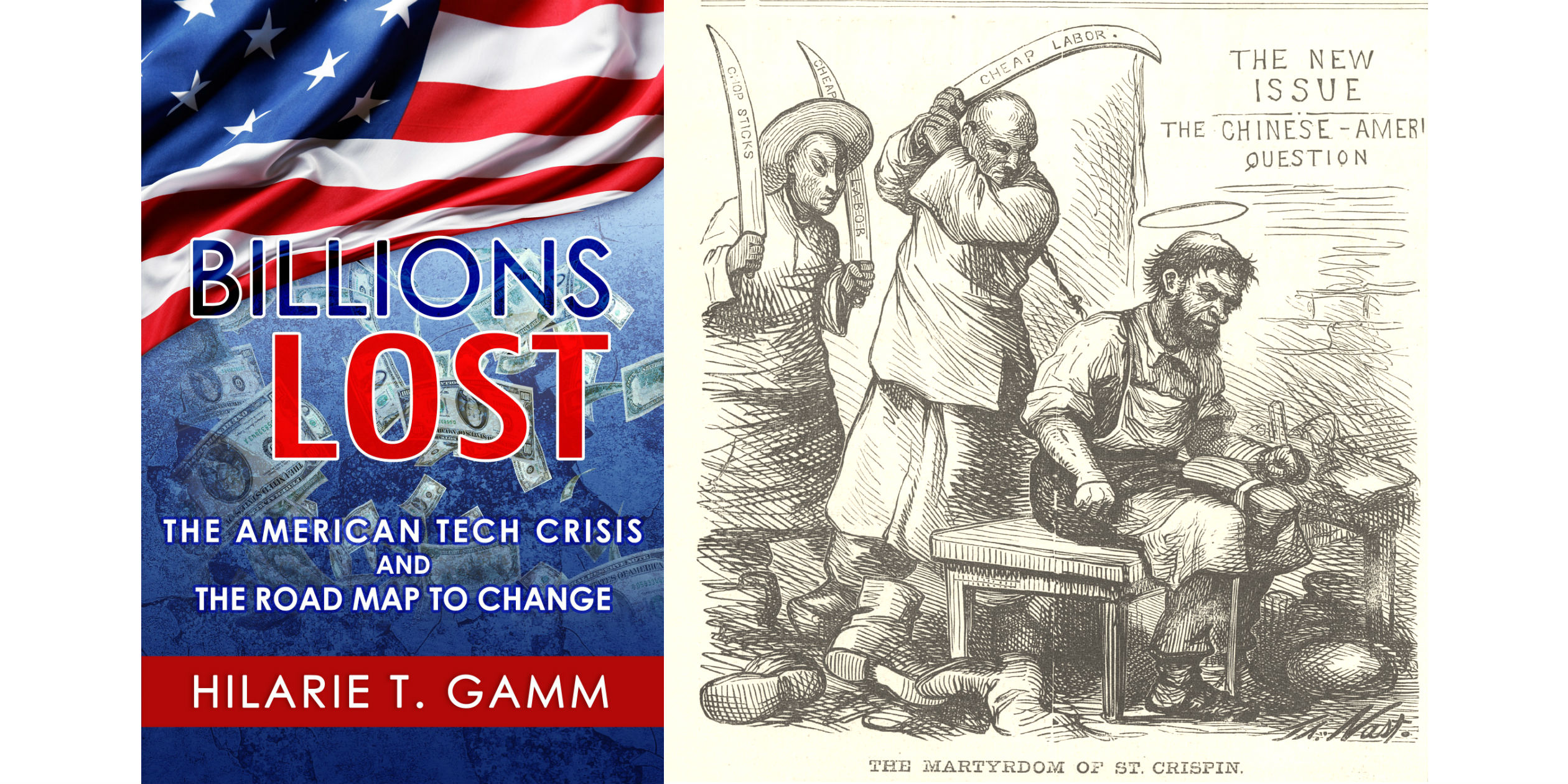You’ll often hear, in reference to current events, that the Republican Party has its origins in the anti-slavery movement of the mid-nineteenth century.
This is, strictly speaking, true, but bowdlerized.
The best an abolitionist Liberty Party candidate ever achieved for President was in 1844 with 2.3% of what was then the popular vote.
The Free Soil Party was anti-slavery but only in so much as it disliked enslaved people. It got 10.1 percent in 1848.
The Know Nothing Party didn’t care for slavery but what really got it going was anti-immigrant nativism, contemporarily aimed at Irish and German Catholics. In 1856, it got 21.5% of the vote. By then, the Republican Party was competing on a slogan of “Free soil, free silver, free men.”
Abraham Lincoln won the presidency as a Republican with less than 40% of the popular vote four years later.

At that time, most white Americans who were inclined to view slavery as a problem chose to blame the enslaved people for the results of their exploitation rather than their slavers.
Many native-born felt compelled to recoil at the conditions recent immigrants experienced in the depths of poverty around them but despised such people for enduring it.
If you’ve ever resented a homeless person for smelling of mildew next to you at a coffee shop rather than the circumstances that led to them being outside in damp and dreary conditions, you’ll understand how insidious and unhelpful this impulse is.
In what might unfairly be called the Oregon View, there has always been a strain of the left that comes to the conclusion that America’s problems can be solved by aligning against the vulnerable and forcibly expelling or further marginalizing them.
Make it illegal for black Americans to stay in the area without having to suffer violence. Make it illegal for Chinese Americans to return to the home they’ve made for decades, even if the person just created the most popular cherry in the United States. The fruit of his ingenuity and hardwork — Ah Bing’s namesake — could stay, but not the person. Oregon is an easy target, but so would be Tacoma.
Or any sundown town. Or anywhere in America at any time.
This post is, by the way, a book review of Hilarie T. Gamm’s Billions Lost: The American Tech Crisis and the Roadmap to Change. It’s a bad book, and in any just world that valued empathy, it would be universally be regarded as such.
Instead we live in this one, and I know it has some appeal.
“A country is more than an economy. We’re a civic society.”
That’s the justification former Donald Trump favorite Steve Bannon would give for keeping nonwhite immigrants out of the United States, even when they’re contributing a net gain in any measurable economic sense.
Good on him for avoiding all dissembling to get right to the heart of white nationalism, though. It’s not the legalism or the process or the idea of a net drain: it’s that the only people he wants here are white, culturally “Judeo”-Christians.
Gamm at least starts from a place of greater sympathy because the supposed subject and target of Billions Lost is the H‑1B visa program.
The specialty occupations that temporary foreign workers are supposed to be filling aren’t necessarily so special at all. The program gives corporations, particularly those in the tech industry, a strong club to beat domestic tech workers with, something they’re keen to do after the class-action lawsuit Vizcaino v. Microsoft of the late 1990s gained domestic workers more protections.
This first portion of the book tracks the history of the U.S. tech industry, showing how regulations requiring employers to treat their American workers fairly sent companies down a path of least resistance looking for workers easier to exploit and mistreat. It acknowledges how rising education standards, globally but particularly in English-speaking India, created an alternative workforce willing and able to do work more cheaply with less stringent protections.
So, the legitimate problem and more fundamental scariness represented by a Y2K catastrophe was an excuse to utilize a lot of temporary foreign workers to fix one big problem, and corporations continued to use such workers long after that emergency had disappeared. The corporations benefitting most from the program made no noise about stopping it, and in the 21st Century, there were no unions of any strength to make noise. No issues there.
But it’s at this crossroad after identifying a problem that progressives and reactionaries fundamentally diverge.
The YouTube creator Olly Thorn provided an optimistic frame for why the left, generally, has the stronger case for the future. A progressive sees the most vulnerable people in a system, and looks for ways to make common cause with each other against some oppressive force, to be stronger by mutual support.
A reactionary looks for ways to use someone else’s weakness as a way to define the vulnerable as separate from and lesser than a more self-sufficient group that the audience of course always imagines being included in.
That’s where this book takes its turn into a bad trip, and where the American left has traditionally struggled.
Gamm says that restricting foreign workers is the best solution to help them not be exploited, but really to help native U.S. tech workers like her.
This is in contrast to the more natural solution: empower those new residents to be independent and give them the sort of protections that would align with other U.S. laborers — that is, to be able to regard themselves as fully American.
Gamm disabuses the reader of any idea that this is an innocent mistake or one born of harmless ignorance by making it unmistakably clear she dislikes the idea of F‑1 visas and foreign students in American universities, too.
Here are some of the complaints Gamm gives for why universities should accept fewer non-native students:
- An anecdote from one Chinese student that “ninety percent” of Chinese students like to hang out with fellow Chinese students instead of socializing with other groups because they have nothing in common.
- A reference to a 2005 New York Times article summarized as foreign graduate students having accents that are too thick and don’t speak English well enough to teach Americans.
- A regurgitation and extension of a Malcolm Gladwell argument in “Rice Paddies and Math Tests” that the culture of Chinese rice farming and acceptance of authoritarianism means the foreign students have a natural predilection for STEM fields that favor rote memorization and practice, something an American focus on “ingenuity” and history of mechanical corn farming can’t fairly compete with.
- This direct quote: “Math, science, and computer majors hold less appeal for those marriage-minded heterosexual young men who hope to meet a potential mate for life during their college studies.”
That’s a literal, if tossed-off, argument the book makes, which, if we’re not in 14 words territory yet, we’re definitely seeing the road signs for the off-ramp to it.
This is, again, not a good book, but that’s a lucky thing, because it would not have been so hard to sand off these rough edges and make it the sort of book other political figures on the left would have felt the impulse to conduct apologetics for as not necessarily racist, just reflecting the sort of thing white people naturally feel uncomfortable about.
Without the references to participation trophies, lazy millenials, and full-throated endorsement of charter schools, this could have been the sort of book that lulled unsuspecting folk into thinking it had anything useful to say.
Luckily, Gamm included all of that and also peddled a conspiracy that Chinese students are all spies taking American intellectual property back to the Middle Kingdom to make fools of us all.
This is an aside in an already digressive piece, but how uninformed do you have to be to examine the relationship between other nations and the U.S. university system and not recognize it as the greatest force of soft power we possess?
It’s not even fair. Repressed, wealthy foreign nationals come to U.S. colleges and experience the best years of their life because they can surf an uncensored Internet and express divergent political opinions with impunity — oh and they’re also young, as healthy and attractive as they’ll ever be.
For the literal entirety of the rest of their lives, these former students will look back on their time in the United States as the best years they ever had, and a not-insubstantial portion will pine to move back and recapture their lost nostalgia.
If you want to improve the H‑1B program, give workers the sort of visa that allows them to work anywhere they want to, unionize just like the native-born, and fulfill their aspirations to become Americans.
If you want to make U.S. colleges more welcoming to already-American students, fund public tertiary education so they don’t have to go into crippling debt to pursue STEM fields deeper. This is not difficult.
You don’t restrict who gets to come to America: you expand what it means to be an American. You actually help people instead of punishing some Other you’ve just defined. If your roof leaks when it rains, fix the roof.
I’m not as optimistic as Olly Thorn. I think folks will always find it easier to shore up their insecurities by pointing at someone else and arguing some essential quality of those people makes them worthy of scorn, Pap Finn-style.
But we can do better.
We have to do better. Not just for tech workers we think can help us in the Brain Drain sense but for those we despise for their weakness and assume can’t help anyone. Bannon has already admitted the distinction is irrelevant. We should too.
A temporary-foreign-worker program that allows and requires those workers to work only for one company in order to make money — and be deported if the company says they broke the terms of their contract — is not slavery, but the choice of destitution for a person and their family set against sexual harassment, physical abusement, or fatal illness is not a fair one for workers to have to make.
That’s for any workers, from any place working any where in America.
That’s where our empathy ought to be.
That’s where our focus on providing guarantees ought to remain.
Jesus said: “As you do to the least of these, you did to me.” We have to make sure that’s important to us whether we’re talking about the one from Nazareth or Michoacán, and whether a Lee was born in Shanghai or Mobile.
We have to do the work of climbing on the roof to fix the leak, not just shove someone out into the rain to feel drier by comparison.


Sure, close your eyes to the widespread abuse of citizens and foreign workers in the name of corporate profit.
Talked with one H‑1B worker who said he knew they were talking jobs from citizens. Said his promised paid room, board, and transportation consisted of a one-bedroom apartment shared by four workers, rice, and 6 AM bus rides to a US tech corporation in exchange for 80–100 hour work weeks and physical threats against his family in India, whom he had not seem in six months, when he protested conditions. Clearly you also believe both and foreign citizens should be equivalent in the eyes of our US government. Indeed, given preferential tax treatment, paid higher education, etc. clear that you believe foreign citizens should be properly elevated above our own. Any and all independent studies have confirmed there is no “skills shortage”. This is a bald-faced lie propagated by corporate lobbyists and their media shills. Do not be mistaken, this is about cheap labor and corporate profits – at the expense of our nation and citizens. And, least you have any doubts, the game has now expanded under new guise, Time to open your eyes.